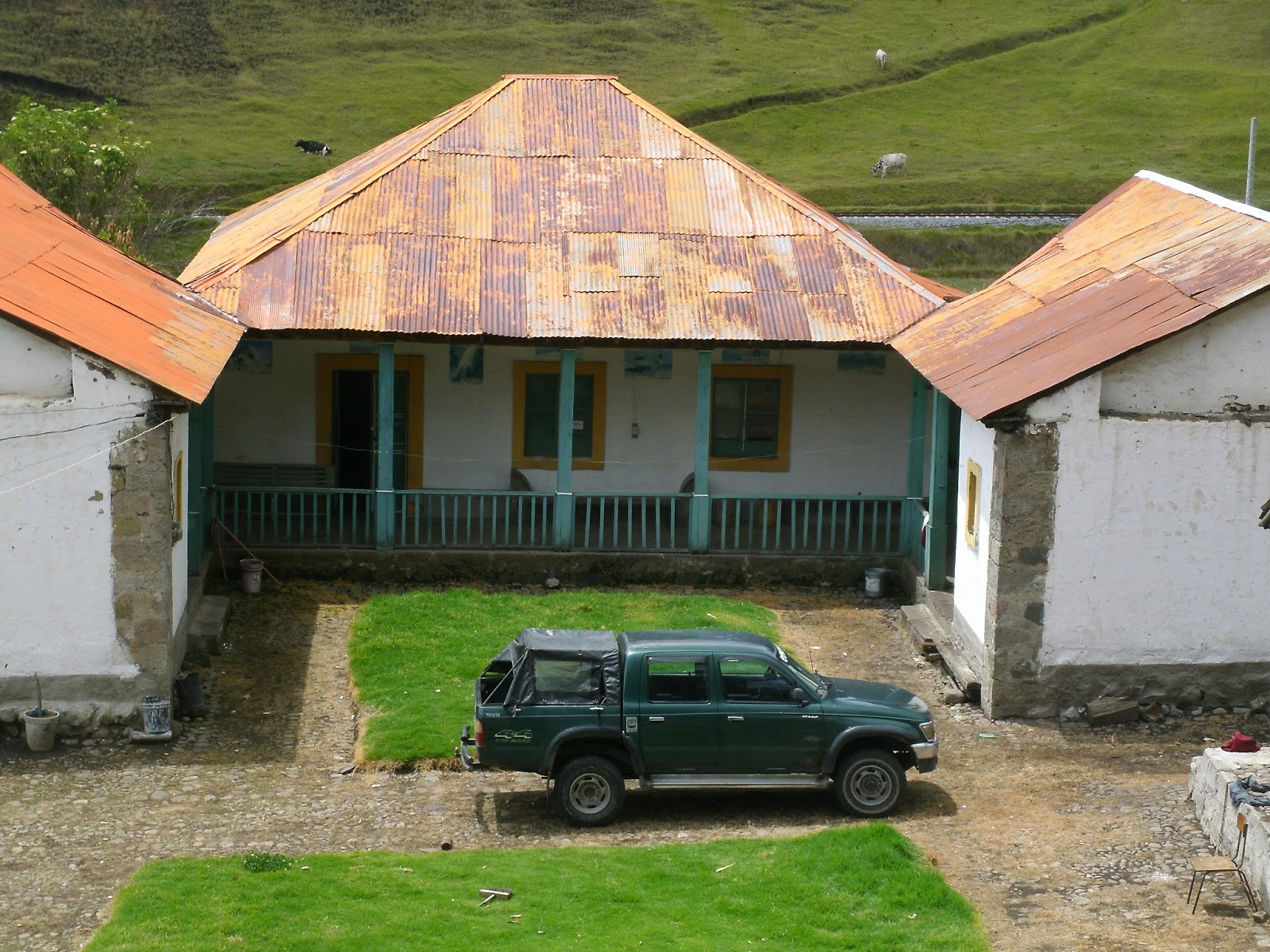The Ecuadorian Congregation Days were held at the hacienda on Saturday January 24. About 65 people were in attendance. The start of the schedule slid about one and a half hours as lunch was not ready but ended only one half hour over the scheduled finish of 6 pm. A local lady was hired to prepare the food so everyone could be part of the services and presentations. No one made it from Guayaquil or Salinas.
Walt opened the event with a prayer, a welcome to all, and a sermon based on Luke 17:20-21: The kingdom of God cometh not with observation. The day was warm at the beginning so services were held outside. Later, it would turn cold and rainy.
 |
| Walt keeps a service and Paulus translates. |
Lunch followed the services. During the lunch break, Arcangel stated that he and his family have wondered "Where is the kingdom of God? What is it? Is it in one's heart or something big and all encompassing?" Walt tried to answer the question using his basic Spanish skills but had to call in a translator. Walt pointed out to Arcangel that the question was fundamental and a very good one. It is also one of the topics to be covered in the camp and maybe it will become clear.
 |
| Arcangel (l) discusses the presentation with others. |
 |
| Avis (l) looks on as the indigenous people enjoy a healthy dinner. |
Antti then gave a presentation on "What is sin?" based on the fall of Adam and Eve into the first sin of disobedience. As a result of the fall, we all have the tendency to sin.
 |
| Paulus, Antti, and Teodoro |
 |
| Adam and Eve |
A short break followed and then Walt gave a presentation on "What is the kingdom of God?" Two slides were used to gauge the understanding of the concept of God's kingdom. The question was "Does the kingdom of God include all Christian faiths or is it a separate fellowship?" The group was divided over the issue. Finally the understanding came that it is a separate fellowship or flock of believers.
Several parables were also reviewed which describe the kingdom of God. The parable of the treasure hidden in a field was studied closely. The question was asked "Why did the one who found the treasure purchase the entire field? Why did he sell everything he owned to purchase the field?" Most understood the treasure to be Jesus Christ, faith, or the forgiveness of sin.
After discussing for a while, one indigenous youth man answered correctly that the field represents the kingdom of God or fellowship of believers. It was a more difficult task to understand what was meant spiritually "by selling all he had" in order to buy the field.
The class was asked which parable representation of God's kingdom they personally liked the most and why. Several voiced their view. One man answered that he liked the one found in Psalm 84, a sparrow has found a place to build a nest and raise her young. He liked it because of the picture of a mother caring for her our. Walt reinforced the answer by referring to the kingdom of God as a mother who cares for each believer. As the presentation and discussion were going long, Walt suggested we should consider bringing it to a conclusion. The students however insisted that we continue the study!!!
 |
| The kingdom of God has a boundary. |
The day ended with a closing devotion by Antti based on the Old Testament benediction text. Numerous group pictures were taken to remember the event. The Quito believers had a hard time finding transportation home. It is about 4hrs from Riobamba or close to 5hrs from the hacienda by bus. Add another 50 minutes by taxi from the bus station and it amounts to a long day. They had left early in the morning to get to the camp on time.
 |
| Closing devotion by Antti. |
 |
| La Merced - the hacienda as it looks today. |
 |
| The "plastic church" in the background. |
 |
| Looking out toward the south and Pan American Highway. |
 |
| The hacienda was once a working farm. |
 |
| Milton's Toyota truck serves as a taxi for the missionaries. |
We headed back to the Monte Carlo hotel for the night. Some of the Martinez family spent the night at the hacienda. Tomorrow we will head back to Quito, then to the airport, from where Antti and Aino will travel to the US for services.
Walt and Avis

























































